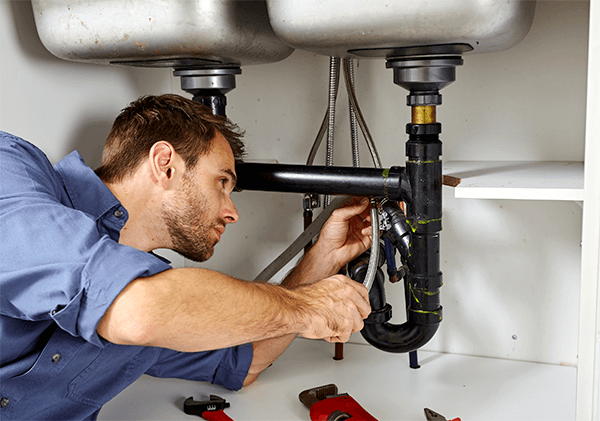Problems With Your Pipes? Plumbing Tips That You Can Use
Do you want to make improvements or repairs to your home's plumbing? Would you like to know how to deal with an emergency? Dealing with issues related to plumbing can be complicated. Whether you are doing it yourself or hiring someone, there are a lot of things you need to be aware of. Here are some useful facts and tips.
If you have noisy pipes, you can cushion them with a rubber blanket or add additional anchor straps. Banging pipes are usually caused by loose pipes, water hammering to a stop as you turn it off, or hot water pipes shifting in their position. All of these problems can be solved by cushioning and anchoring the pipes.
Understanding how your tools work can give you a tremendous boost when plumbing. Read each and every manual, and utilize the information that can be found in libraries and the Internet about do-it-yourself projects. Don't just blindly rush into a project. Plan each project so that you don't make costly mistakes.
Watch how your toilets are flushing. If you have to jiggle the handle or if it takes too long, you might have to repair some toilet parts. Replacing these parts early may help you to save on your water bills and will save you from more expensive repairs at a later date.
You should drain all of the water out of the tank of your hot water heater at least once every three to six months. Draining all of the water out of the tank helps to prevent sediment build-up at the bottom of the tank. This sediment can cause the tank to bang or to heat less efficiently.
Make sure you get a good recommendation or check the references before you hire a plumber. With good recommendations, it will assure that you are hiring an experienced plumber. If the experienced plumber is professional, he will have a fully stocked truck and be able to complete most small jobs in one visit.
You can remove unsightly mineral buildup from your shower head by soaking it in vinegar overnight. This loosens the deposits, and in the morning you only need to wipe off the residue with a rag. If your shower head is high up an not removable, place vinegar in a plastic bag, slip the bag over the shower head and hold in place with a twist tie.
Make sure to pour a gallon or two of water into drains that are used infrequently. Not only does this make sure that they are clear when you need them, but can also fill the trap and make sure that unpleasant odors don't enter your home. Doing this periodically will also help you to catch problems before they become serious.
If you have a foul odor coming from your garbage disposal, this is due to food debris buildup. You need to put ice cubes, orange peels, and lemon peels into the disposal and run for about 30 seconds. Next, run some liquid dish soap through the disposal. This should take care of the problem if there is not a substantial blocking buildup.
In the winter months, if you live somewhere where temperatures fall below freezing, leave your faucets on a little bit to let a thin stream of water through. This will help prevent the pipes from freezing, which could be a major problem for you and all the pipes in your home.
If the pipes have burst in an upstairs area, use a tool to perforate the ceiling underneath in several places and places pots and pans under to catch the water. If this is not done, the weight of the accumulating water could cause a collapse of the entire ceiling.
If you find that your pipes have frozen during the cold winter months open all the faucets in your home. This lowers the water pressure for when the pipes thaw and the water is freely flowing again. Make sure to open all the faucets not just those that are frequently used.
If you own property where the temperature gets below freezing for an extended amount of time each year, you should make sure that pipes located in unheated areas, such as crawl spaces and garages, are insulated. Pipes that are exposed to the outside elements or those that are prone to freezing, should be protected by heat tape or thermostat-controlled heat cables to prevent them from freezing.
Main water cut off valve is a very important piece of information you should be aware of, and you should know exactly where it is. The water meter should be located in its vicinity. Additionally, certain fixtures in your home, including sinks and toilets, may have individual cut-off valves. To prepare for an emergency, make sure that everyone in your family is familiar with the location of the valves. It also helps to mark the valves with arrows indicating the direction in which they should be turned to shut them off or turn them on.
Being educated about plumbing issues is essential if you are a homeowner. Problems can occur when we least expect it, so understanding how to handle common DIY projects, and knowing what you need to be aware of in hiring a contractor will all go a long way towards getting your project done, and done w
Greenevers, NC

